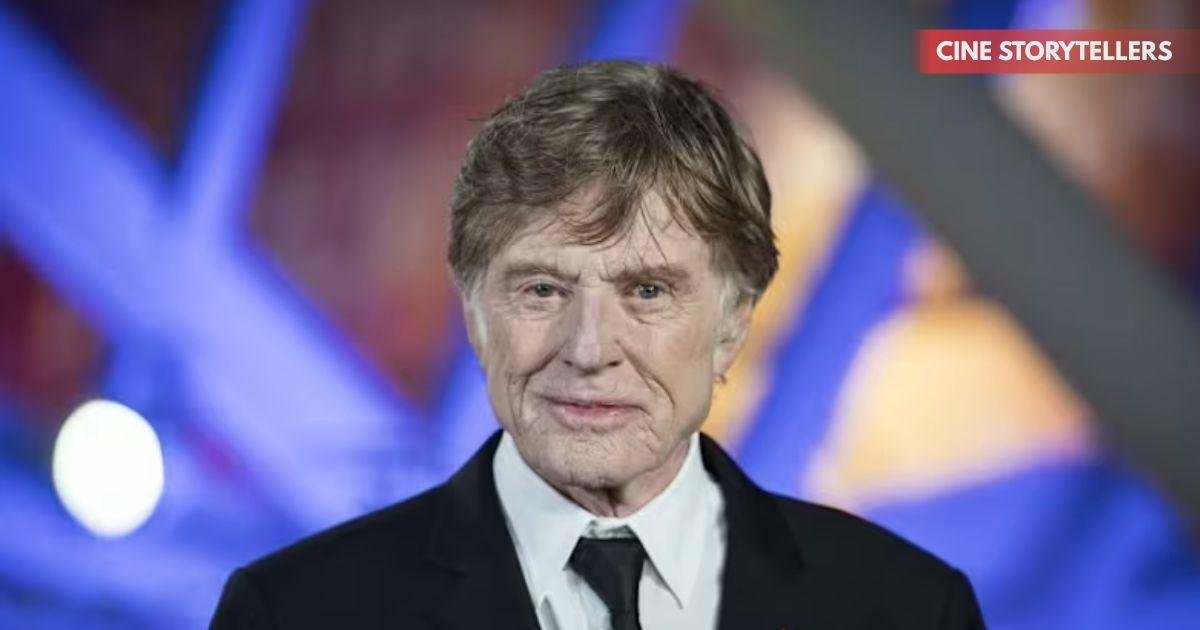Robert Redford, one of the most influential figures in Hollywood history and the man behind the Sundance Film Festival, has died at the age of 89. His death marks the end of an era in American cinema, as he leaves behind a towering legacy of unforgettable performances, directorial masterpieces, environmental advocacy, and a commitment to supporting independent filmmakers.
Early Life and Humble Beginnings
Born Charles Robert Redford Jr. on August 18, 1936, in Santa Monica, California, Redford came from a modest background. His father worked as a milkman and later as an accountant, while his mother encouraged his creativity. After losing his mother at a young age, Redford struggled with direction and discipline.
Though he briefly pursued a baseball scholarship at the University of Colorado, his true calling was in the arts. Travels through Europe led him to painting and eventually to acting, where his natural charisma and depth began to shine.
Breakthrough in Hollywood
Redford began his career on stage and television before making his way into films. His big break came with Barefoot in the Park (1967), opposite Jane Fonda. However, it was Butch Cassidy and the Sundance Kid (1969), alongside Paul Newman, that cemented his star status.
This role gave birth to the “Sundance Kid” moniker, which would later inspire the name of his independent film institute and festival.
Defining Roles on Screen
Throughout the 1970s and beyond, Redford delivered some of cinema’s most memorable performances:
- The Sting (1973): Reunited with Newman for a classic con-artist story, which went on to win Best Picture at the Oscars.
- All the President’s Men (1976): As Bob Woodward, he helped bring the Watergate scandal to life, merging Hollywood with political history.
- Jeremiah Johnson (1972): Showcased his love of nature in a survivalist drama.
- Out of Africa (1985): A romantic epic that won seven Academy Awards, including Best Picture.
- Three Days of the Condor (1975): A political thriller that still resonates in today’s world of espionage and mistrust.
These performances showcased his ability to balance rugged charm with deep vulnerability, making him one of the most versatile actors of his generation.
Success Behind the Camera
Redford was not just an actor—he was a visionary director. His directorial debut, Ordinary People (1980), was a critical and commercial success, winning four Academy Awards, including Best Director for Redford.
He went on to direct films such as:
- A River Runs Through It (1992)
- Quiz Show (1994)
- The Horse Whisperer (1998)
His directing style emphasized emotional honesty, natural settings, and the complexities of human relationships.
Founding the Sundance Institute and Festival
Perhaps Redford’s greatest contribution beyond acting was the creation of the Sundance Institute in 1981 and the Sundance Film Festival in 1985.
Sundance became the premier platform for independent filmmakers, launching the careers of directors like Quentin Tarantino, Steven Soderbergh, Ava DuVernay, and Darren Aronofsky. Redford envisioned a space where stories outside the Hollywood mainstream could thrive—and he succeeded in reshaping the landscape of global cinema.
Environmental Advocacy and Activism
Redford’s love of nature was more than a hobby—it became a lifelong mission. He was an outspoken advocate for environmental conservation, supporting renewable energy, public lands, and climate change awareness.
He worked with organizations like the Natural Resources Defense Council and used his influence to bring attention to environmental issues long before they were mainstream topics of discussion.
Awards and Recognition
Over his six-decade career, Robert Redford received numerous honors, including:
- Academy Awards: Best Director for Ordinary People (1980) and an Honorary Oscar (2002).
- Golden Globe Awards: Multiple wins across acting and directing categories.
- Presidential Medal of Freedom: Awarded in 2016 for his contributions to the arts and environment.
- Kennedy Center Honors: Recognized in 2005 for his cultural impact.
These accolades reflect not only his artistry but also his broader impact on American culture.
Personal Life and Challenges
Redford married Lola Van Wagenen in 1958, and together they had four children, including filmmaker James Redford, who sadly passed away in 2020. The couple divorced in 1985. In 2009, Redford married German artist Sibylle Szaggars.
Despite his fame, Redford valued privacy. He often retreated to his home in Utah, where he balanced family life with his passion for art and the environment.
The Enduring Legacy of Robert Redford
Robert Redford’s influence on film and culture cannot be overstated. As an actor, he brought charisma and depth to the screen. As a director, he shaped narratives that resonated with truth and authenticity. As the founder of Sundance, he created a sanctuary for independent voices that continues to thrive.
Even in his later years, he remained active in film and social causes, proving that his passion for storytelling and advocacy never wavered. His passing leaves behind not only a library of iconic works but also a movement that empowers future filmmakers.
Remembering Robert Redford
Fans, colleagues, and world leaders have expressed their admiration and grief at Redford’s passing. Social media platforms were flooded with tributes celebrating his artistry, activism, and humanity.
While his physical presence may be gone, Robert Redford’s spirit lives on—in every Sundance screening, in every environmental campaign, and in the timeless films that continue to inspire generations.
Also Read : Jennifer Coolidge Sparks Concern at 2025 Emmys: Fans React to Her Appearance
FAQs
Q1: How old was Robert Redford when he died?
A1: Robert Redford passed away at the age of 89.
Q2: What are Robert Redford’s most famous movies?
A2: Some of his most iconic films include Butch Cassidy and the Sundance Kid, The Sting, All the President’s Men, Out of Africa, and Ordinary People.
Q3: What is Robert Redford’s biggest contribution outside of acting?
A3: He founded the Sundance Institute and Sundance Film Festival, which became the world’s most influential platform for independent filmmakers.
Q4: Was Robert Redford involved in activism?
A4: Yes, he was a lifelong environmental advocate, supporting renewable energy, public lands protection, and climate change awareness.
Q5: Did Robert Redford win any major awards?
A5: Yes, he won an Academy Award for Best Director, an Honorary Oscar, a Presidential Medal of Freedom, and numerous Golden Globes and other honors.
Join our WhatsApp channel for more updates and information about celebrities and entertainment.

I’m Atul Kumar, founder of Cine Storytellers and an entertainment creator with 5+ years of experience. I cover films, celebrities, music, and OTT content with a focus on accurate, ethical, and engaging storytelling. My goal is to bring readers trustworthy entertainment news that informs, inspires, and goes beyond gossip.
Discover more from Cine Storytellers
Subscribe to get the latest posts sent to your email.
